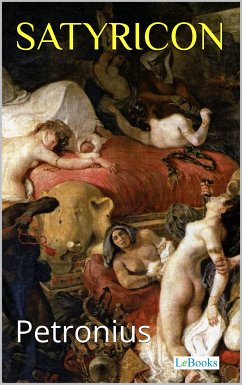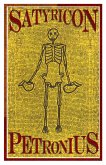The work Satyricon, or Satiricon, was written in 66 AD by Gaius Petronius Arbiter, a Roman courtier during the time of Emperor Nero. A classic of world literature and an important testimony to life in ancient Rome, Satyricon is considered the first realistic novel in world literature. It contains themes that would be explored in greater depth only in the Realist literature of the late 19th century, such as social exploitation and hypocrisy. Most of the characters in Satyricon are devoid of modesty. It is very interesting to note the complete amorality of the citizens, as Christianity had not yet "purified" everyone. There is no repression or shame regarding sexuality. Like any universal classic, Petronius' text describes scenes that can still be identified in human behavior today. In this case, the author's observations about the high society of his time and their behavior still retain an impressive resemblance to their current equivalents. In the words of Otto Maria Carpeaux: "Petronius' work is of strange and cheerful relevance."
Dieser Download kann aus rechtlichen Gründen nur mit Rechnungsadresse in A, B, BG, CY, CZ, D, DK, EW, E, FIN, F, GR, H, IRL, I, LT, L, LR, M, NL, PL, P, R, S, SLO, SK ausgeliefert werden.









